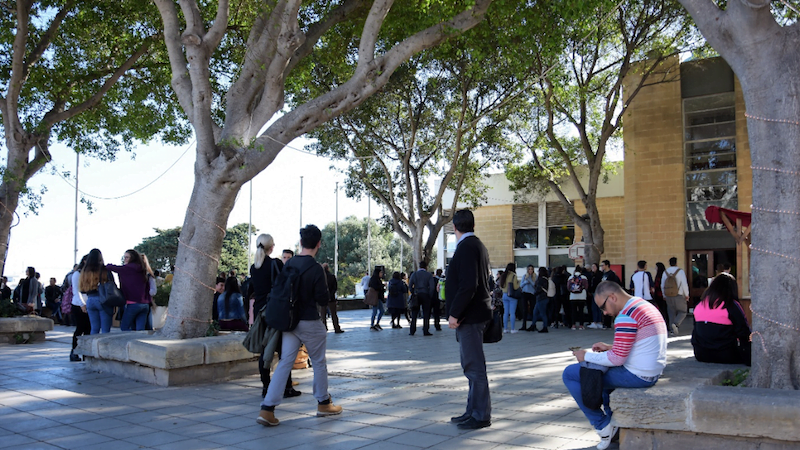Someone really should have told Kanye West that he simply should not attempt Bohemian Rhapsody in concert.
Most of us really wish one of Trump’s advisors would be a little more vocal before his every tweet, press briefing, or speech.
Before Glenn Bedingfield and Edward Scicluna were sent as the Maltese government’s representative on a CBS show about corruption and murder in Malta, many of us really really wish someone had had a word with them.
These are examples of people who have been led to believe they are smarter or better than they actually are by the coterie of ‘yes’ men and women who surround them. The cheerleaders who applaud and pat them on the back while the rest of the world stifles a laugh and shakes its head.
They’re bubble-wrapped in continuous and uncritical positive affirmation and praise from their tribe. There’s actually a recognised cognitive bias called the Dunning-Kruger effect in which people of low ability mistakenly assess their cognitive ability to be greater than it is.
The combination of poor self-awareness and low cognitive ability leads them to overestimate their own capabilities, and to be deaf to any criticism of them.
“The term lends a scientific name and explanation to a problem that many people immediately recognise — that fools are blind to their own foolishness,” as physician Kendra Cherry put it, while pointing out that Charles Darwin wrote in his book ‘The Descent of Man’ that, “Ignorance more frequently begets confidence than does knowledge”.
Studies have shown that cultural forces may have a part to play. The suggestion is that the way a society raises its children can have an effect on how self-aware and self-critical they are.
Could this be true of the way the Maltese raise their children? Is the Maltese family a grouping of ‘yes’ people? In general, children are actively encouraged to ‘obey’ without question, at home and at school.
I remember, for example, being repeatedly kicked out of religion class as a boy for asking “the wrong questions”. It got to the point where the headmaster had invited me to have a debate about the existence of God in front of the whole school hoping to discourage me, but quickly back-peddled when I showed up the following week with a file of research. He suggested instead that I could miss classes in favour of a ‘study hour’. He preferred that to opening up the question to the rest of the school.
We also know that while much of Europe’s youth have been forced to stay on with their parents because of high rent and mortgage rates and the dire job market (where traditionally they left home as soon as they could), Maltese children have always been infantilised well into adulthood.
Eurostat figures for 2017 show that Maltese people are taking the longest time, when compared to other EU countries, to leave their parents’ home.
What hope do Maltese children have if their parents will not let them grow up?
A patriarchal society does not help. Little boys are raised as the apple of their mother’s (and father’s) eye, and doted on. This is not a rule, it’s not always exclusively just boys, and not all Maltese boys grow up thinking they’re inherently right about everything, but the trend is clear.
It simmers beneath the surface in the collective unconscious and rears its ugly head often, be it in debate of any kind, in the work sector, or in relationships (which is perhaps why Malta has such a high incidence of femicide and domestic abuse).
This is not exclusive to Malta, of course, and typical of other countries with similar ‘cultures’ – this can be said of Italian mothers and of Irish ‘mammys’ too – but the consequences are the same. What you end up with, put simply, are spoiled children who believe they are infallible and – in the case of the political class – entitled to their positions of power.
They are deaf to silly things like facts and incapable of reasoning – which is why political talk shows, or any kind of debate for that matter – easily descend into shouting matches.
We raise our children to be dangerously simplistic, devoid of a civic sense of duty or social awareness, and we get the political class we deserve as a result. Maybe it’s time to inculcate a culture of self-critique and reflection. Maybe it’s time to say ‘yes’ less.












